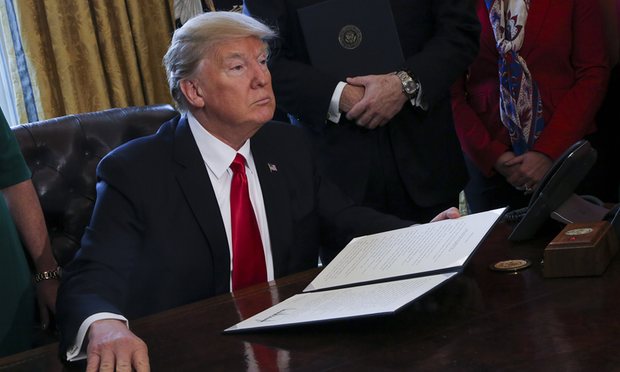ISLAMABAD ( MEDIA REPORT )
Almost 100 US technology companies have filed a legal brief opposing President Trump’s ban on migration from seven Muslim-majority countries, arguing that it imposes significant burdens on the industry by preventing it from hiring talented migrants.
Among the companies signing the filing, an amicus brief supporting Washington state’s lawsuit against Trump’s order are Apple, Facebook, Google and Microsoft, as well as smaller firms such as Uber, Reddit, Netflix and Dropbox. Notably absent are Amazon, which had previously pledged its support to the Washington lawsuit, and Tesla and SpaceX, the companies of Trump advisory council member Elon Musk. An Amazon spokesperson said that the company was advised by the Washington attorney general to not join the amicus brief, since the company acted as a witness in the original lawsuit.
The brief argues that the executive order harms innovation and economic growth, as well as the competitiveness of American companies while also being unlawful.
It argues that the beneficiaries of America’s generally pro-migration attitude “are not just the new immigrants who chose to come to our shores, but American businesses, workers, and consumers, who gain immense advantages from immigrants’ infusion of talents, energy, and opportunity”. It also claims that the executive order will serve to “incentivise both immigration to and investment in foreign countries rather than the United States”.
Legally, the brief argues two main points make the order unlawful: the fact that exercises arbitrary discretion, and that it discriminates on the basis of nationality. “There is no precedent for an order like this one in magnitude or kind,” the brief declares. “No order before this one imposed a categorical ban of hundreds of millions of foreign nationals.”
The lawsuit is currently being heard in the ninth circuit court of appeals, a federal court in San Francisco. If the court finds the ban illegal, it is likely that the administration’s appeals will continue, and the case could end up in the US supreme court.

